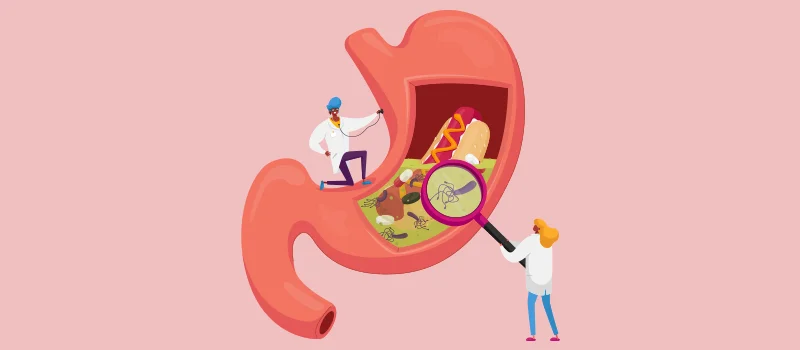How Long Does It Take To Digest Food? Why Food Transit Time Is Unique For Everyone?

Several factors contribute to the variation in food transit time among individuals:
1. Type of food:
The composition of a meal significantly influences digestion time. Simple carbohydrates digest quickly, while complex carbohydrates, proteins, and fats exhibit prolonged breakdown periods. Foods rich in insoluble fibre, such as fruits, tend to move swiftly, while meats may require up to 2-3 days for completion.
2. Fibre content:
High-fiber foods, including fruits, vegetables, and whole grains, generally navigate the digestive system more slowly.
3. Age:
Digestive processes may decelerate with age, resulting in extended transit times. Children and infants commonly experience faster digestion than adults.
4. Metabolism:
Individuals with a higher metabolism often undergo expedited digestion, whereas those with a slower metabolism may exhibit prolonged food transit.
5. Hydration:
Adequate hydration is integral for efficient digestion. Inadequate water intake may lead to constipation and a slowdown in transit time.
6. Exercise:
Physical activity correlates with improved metabolism, potentially expediting food transit through the digestive system.
7. Medical conditions:
Certain health conditions, such as irritable bowel syndrome (IBS), thyroid dysfunction, diabetes, or gastrointestinal disorders, can significantly impact digestion, resulting in either accelerated or delayed transit times.
The Average Digestion Time: From Small Meals to Large Feasts
Digestion time refers to the time between putting food in your mouth and elimination of waste material with a bowel movement. เล่นบาคาร่า UFABET เว็บตรง ค่าคอมสูง of Diabetes and Digestive and Kidney Diseases, the average digestive time ranges from 24 to 72 hours in people with healthy digestion. Several factors, such as your age, sex, lifestyle, diet, and medical conditions can shorten or prolong digestive time.